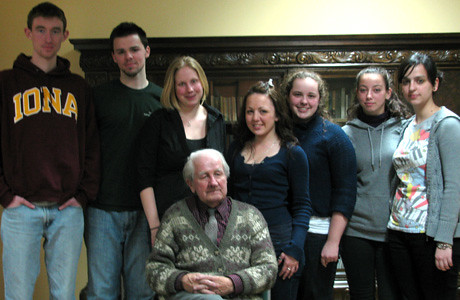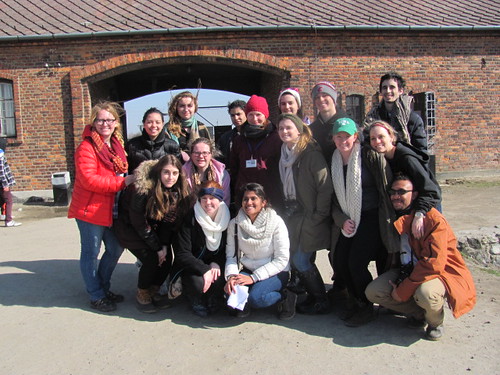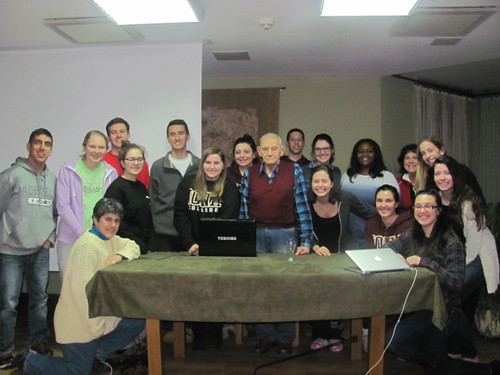Coming home from Poland I struggled to put into words my experience the first few days. Of course, people asked me, “How was it?” or “I want to hear all about it!” However, I really wasn’t able to really say how I felt. I settled on a few words every time a different person asked me. Saying, “Amazing" or "Life changing” were my go-to answers. This was usually followed by “Great, good for you!” then some casual banter of what they knew about the Holocaust. Although, a month later I was able to talk about my experience.
I think experiential learning is by far the most effective way I’ve learned here at Iona. I am amazed I was able to take what I learned from my religion class, and walk the ground where it took place. Walking through a concentration camp is obviously a million times different than actually living through it. I always felt extremely guilty in a way knowing that I was walking on ground, where people walked to their deaths. On the last day in Poland when we were given time to walk through Auschwitz by ourselves my heart felt so much sorrow for the victims. Not to say I didn’t feel this everyday walking through the different concentration camps, but this was on a greater level. Perhaps it was the knowing it was the last day here along with being alone with my thoughts. Silence in a concentration camp is a very somber and sobering experience. Not listening to anyone talk, allowed my own thoughts take over.
As I walked past the double barbed wire fence, I couldn't imagine the pain these victims felt wanting to be on the other side of the fence. Wanting their life back after it was stolen from them. I thought, “How’d I get so lucky?” Here I am walking the grounds where thousands were murdered every day. I am walking free, with three sweaters, and a winter jacket after stuffing my face at a breakfast buffet. How is that fair? Why was I lucky enough to be free from it? Why was I lucky enough to practice my religion without being persecuted for it? Why?
I clearly didn’t come to answer any of those questions because there is no answer. I don’t know why. What I do know, is how influential this religion course was for my life. My eyes were opened to the most horrific genocide in history. I do know that our life on Earth is short. If you are able to wake up in the morning, consider yourself to be lucky. I do know the great significance to educate people on the Holocaust because overtime this deep, dark wound, fades, when it should never. People get historical amnesia and don’t realize this can happen again. How can they not realize? How do we not see and hear what is going on around the world? Mass genocides are going on right now, and we are doing nothing.
The evil in the world deeply saddens me because at times I think, “What can I really do?” But, if I learned anything from this trip, it is - don’t be a bystander. Do something! Never stand back and allow something to happen that you know is wrong. This can be applied on many different levels with various aspects of life. For me, will I ever be able to stop world hunger? Or mass genocides? Or create world peace? Although I would love to, realistically these things are not an attainable goal for solely me or anyone. However, on a smaller scale, being a good person, and doing what is right IS something I can achieve and strive for. I’m not perfect by any means, but I do know the difference between right and wrong. I do know that love is never wrong. I do know whenever I think about how tough life is, I now have a voice in my mind that brings me back to Poland. How could I think such things? Am I that ungrateful? This course gave me a greater understanding of the world, people, places, and history. On a personal level, this course gave me a greater understanding of myself. This class gave me the awareness, and the importance of words and my actions. Life is precious, and I should never waste time over the small stuff. To have my life, I know am already so lucky. Now, I must live in a way that benefits humanity and be a voice to the voiceless.






















